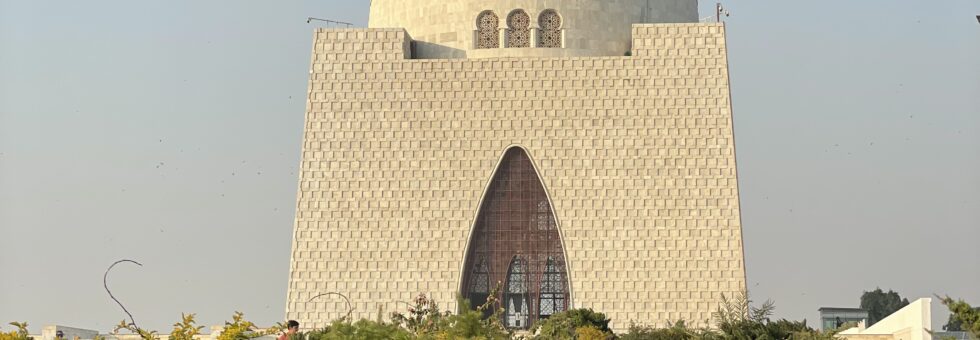
Quaid-e-Azam Muhammad Ali Jinnah remains as quite possibly of the most persuasive figure throughout the entire existence of South Asia, and his job in the formation of Pakistan is stupendous. He is frequently alluded to as the “Father of the Country” for his unflinching initiative, vision, and assurance, which prompted the introduction of Pakistan on August 14, 1947. Jinnah’s excursion from being a head of the Indian Public Congress to turning into the premier defender of Muslim interests in India epitomizes his political discernment and obligation to the reason for the Muslim people group. The making of Pakistan was not only a mishap of history but rather a demonstration of the tenacious endeavour of Jinnah and the All-India Muslim Association.
Early Life and Political Profession
Brought into the world on December 25, 1876, in Karachi, Jinnah had a place with an unmistakable Muslim family. His initial training occurred in Bombay (presently Mumbai), and later he made a trip to Britain to concentrate on regulation at Lincoln’s Motel. Upon his re-visitation of India, he left on a legitimate profession, before long acquiring a standing as quite possibly of the best attorney in Bombay. His legitimate abilities would work well for him in his political profession, permitting him to contend for Muslim privileges and the possible production of Pakistan with lucidity and accuracy.
At first, Jinnah was a firm devotee to Hindu-Muslim solidarity and effectively worked for Indian self-rule. He enlisted in the Indian Public Congress in 1906, which was the prevailing political association pushing for autonomy from English rule. In the early long stretches of his political vocation, Jinnah was hailed as an “Diplomat of Hindu-Muslim Solidarity” because of his endeavour to connect mutual contrasts. His crucial job in the Luck now Settlement of 1916, which was an understanding between the Congress and the All-India Muslim Association, embodies his initial obligation to a unified India where Muslims and Hindus could coincide calmly.
Be that as it may, after some time, Jinnah became frustrated with the Congress, especially under the authority of Mahatma Gandhi, who accentuated Hindu strict imagery in legislative issues, causing Jinnah a deep sense off’s distress. The rising minimization of Muslims inside the Congress and the developing collective strains drove Jinnah to reconsider his methodology. By the 1930s, he arose as the head of the All-India Muslim Association and started pushing for a different Muslim state where the privileges and interests of Muslims could be protected.
Two-Country Hypothesis
Key to Jinnah’s vision for Pakistan was the Two-Country Hypothesis. This belief system, which turned into the groundwork of the interest for Pakistan, contended that Muslims and Hindus were two unmistakable countries with their own traditions, religion, and customs. Jinnah enunciated that the social, strict, and social contrasts between the two networks were significant to the point that they couldn’t coincide calmly in a solitary country state.
Jinnah’s well known discourse at Lahore on Walk 23, 1940, during the yearly meeting of the Muslim Association, denoted a critical defining moment. In this discourse, he broadly expressed:
The Hindus and the Muslims have a place with two distinct strict methods of reasoning, social traditions, and writing. They neither intermarry nor between feast together, and without a doubt they have a place with two unique developments which depend principally on clashing thoughts and conceptions.”*
This discourse laid the basis for the Lahore Goal, otherwise called the Pakistan Goal, where the Muslim Association authoritatively required the production of “free states” for Muslims in the north-western and eastern zones of India. This was the initial time the possibility of Pakistan, as a different Muslim state, was expressly expressed. Jinnah’s part in this was vital as he solidified the opinions of Muslims who felt strategically, monetarily, and socially minimized under a Hindu-larger part government.
Initiative during Talks with the English
As The Second Great War reached a conclusion, the English government started thinking about the exchange of capacity to Indian pioneers. Jinnah’s administration during this basic period was essential in guaranteeing that the interest for Pakistan was treated in a serious way by the English and Congress. The 1940s were set apart by extraordinary exchanges, political moving, and shared savagery. Jinnah’s emphasis on the rule of self-assurance for Muslims put him a profoundly dedicated aside as a pioneer to protecting the fate of his kin.
Perhaps of the main second in Jinnah’s administration came during the Bureau Mission Plan of 1946. This plan was an English endeavour to keep India joined while giving independence to Muslim-larger part regions. While Jinnah at first acknowledged the arrangement, seeing it as a trade off that might actually get Muslim privileges, Congress’ dismissal of specific parts of the arrangement prompted its disappointment. This breakdown of dealings persuaded Jinnah and the Muslim Association that a quiet arrangement inside a unified India was as of now not conceivable.
End
Quaid-e-Azam Muhammad Ali Jinnah’s part in the making of Pakistan is unrivalled. From his initial days as a hero of Hindu-Muslim solidarity to his authority of the Muslim Association and his possible interest for a different Muslim express, Jinnah’s political excursion was one of assurance, system, and a steady obligation to his kin. His vision of Pakistan as a popularity based, moderate, and comprehensive country keeps on motivating ages of Pakistanis. Regardless of the difficulties that Pakistan has looked since its beginning, the country’s very presence is a demonstration of Jinnah’s heritage and his indefatigable endeavors to get a country for Muslims of the Indian subcontinent.

